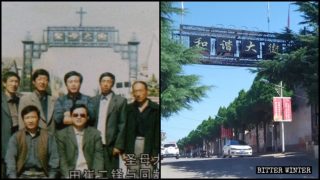
Kenya depends economically on China, but for the Chinese Kenyans are just monkeys, there are separate baths for each race, and Kenyan female workers are slapped in their face for minimal errors. Another striking example of the “dehumanization” dear to the Chinese communist regime and its “private” acolytes to expand Beijing’s influence in the world.
Marco Respinti
In 2014, Howard W. French, former foreign correspondent for The New York Times(whose Shanghai office he has directed for a long time, fluently speaking several languages including Mandarin) and now a professor at Columbia University Graduate School of Journalism in New York, described Africa as China’s “backyard”, documenting the expansion of the Asian giant in the Black Continent in the book China’s Second Continent: How a Million Migrants Are Building in New Empire in Africa (New York: Knopf). The Chinese have money, a lot of, and Africa literally needs everything. Which better market, therefore, for expanding? A case study is Kenya.
Independent since 1963, its little more than 224,000 square miles of surface are inhabited by an estimated 50 million people who officially speak English and Swahili. Divided into 47 acknowledged ethnic groups (Bantu and Nilotic are the most widespread, but in size, the former group more than doubles the latter), Kenyans are mostly Christian and predominantly Protestant. Muslims follow, while indigenous worships are practiced by a small minority. Among minorities, one must register also one the largest Hindu community of the whole Africa (above all effect of immigration), one of the most significant presences of the Bahá’í faith and also a small Buddhist group. The poverty rate is very high, and in the Human Development Index, published annually by the Human Development Office of the Development Programme of the United Nations Organization, the African country is at 142nd place out of 189.
The train of desires
To this picture, one must add an evaluated Chinese presence (even if the statistics are quite difficult to compile) of about 40,000 people. Following business logic, many Chinese remain in Kenya only a few years: the rate of their turnover is therefore high and for the most part they hold managerial roles in companies mainly engaged in infrastructures. The partnership between the Kenyan government and Chinese entrepreneurship is, in fact, more solid today than ever. One of its major symbols is the more than 290 miles of railway tracks of the route traveled round-trip twice a day by the trains that shuttle between the capital city Nairobi and the port of Mombasa on the Indian Ocean: the Mombasa-Nairobi Standard Gauge Railway, costing US$ 3.6 billion, inaugurated on June 1, 2017 – 54th Madaraka Day (Day of Responsibility), i.e. the anniversary of Kenyan home-rule from the British Empire in 1963 ‒ and the foremost infrastructure of the country since its independence. The Chinese have funded it, the China Road and Bridge Corporation (grown out of the Foreign Aid Office of the Ministry of Communications of China) has built it employing 25,000 Chinese and, for several years, it will be operated by the Chinese.
On the whole, today’s Kenya is linked to Beijing by US$ 5.3 billion of debts, but in Africa, it is by no means an isolated case. In fact, over the last decade, China has become the largest lender of money to African countries, allowing the construction of ports, roads, bridges, airports, and railways. It is a movement of capital and enormous powers that it is ludicrous to imagine to be only the initiative of private companies even if often, on African territory, private companies are those which materially act. Not a leaf stirs but Beijing wills it. Yet in the package, there has never been any sine cura for calling Africans names like monkeys.
Neocolonialism and discrimination
As Joseph Goldstein documents in The New York Times edition for October 15th, many Chinese managers, in fact, call their Kenyan workers “monkeys.” The case of Richard Ochieng went viral. A 26-year-old guy from a village near Lake Victoria, Ochieng works in Ruiru, a fast-growing settlement at the edge of Nairobi, for a Chinese motorcycle company. His boss, aged 26 alike, Liu Jiaqi, claims that all Kenyans are monkeys, including the president of the republic, Uhuru Muigai Kenyatta. When Ochieng replies that the Kenyans are free since 1963, Liu Jiaq reiterates that even monkeys are free. The video recorded by the young African with his smartphone has toured the world and the young Asian was immediately repatriated.
But, Goldstein says, “[…] episodes involving discriminatory behavior by the region’s growing Chinese workforce have unsettled many Kenyans, particularly at a time when their government seeks closer ties with China”. In fact, “[a]s the country embraces China’s expanding presence in the region, many Kenyans wonder whether the nation has unwittingly welcomed an influx of powerful foreigners who are shaping the country’s future ‒while also bringing racist attitudes with them. It is a wrenching question for the nation, and one that many Kenyans, especially younger ones, did not expect to be confronting in the 21st century.” And again, it is not just the case of Kenya since China “[…] has lent money and erected infrastructure on a sweeping scale across Africa. To pay for such projects, many African nations have borrowed from China or relied on natural resources like oil reserves.”
According to Goldstein, in Nairobi “[o]ne described watching a Chinese manager slap her Kenyan colleague, who was also a woman, for a minor mistake.” Other Kenyan workers “[…] explained how their office bathrooms were separated by race: one for Chinese employees, the other for Kenyans. Yet another Kenyan worker described how a Chinese manager directed his Kenyan employees to unclog a urinal of cigarette butts, even though only Chinese employees dared smoke inside.”
As to the famous Nairobi-Mombasa railway, Godlstein informs, “[…]in July, The Standard, a Kenyan newspaper, published a report describing an atmosphere of ‘neocolonialism’ for Kenyan railway workers under Chinese management. Some have been subjected to demeaning punishment, it said, while Kenyan engineers have been prevented from driving the train, except when journalists are present. It was a particularly explosive claim because during the train’s maiden voyage, with President Uhuru Kenyatta on board, two Kenyan women drove the train to much fanfare. In interviews with The New York Times, several current and former locomotive drivers agreed that only Chinese drivers got to operate the train, describing a range of racist behavior. ‘With uniforms on, you won’t look like monkeys anymore,’ Fred Ndubi, 24, recalled his Chinese supervisors saying. Two other workers with him offered the same account.”
Dehumanization
The racism of the Chinese elites abroad has even ended up on television. “Two years ago,” Goldstein explains, “a laundry detergent company in China ran a television commercial in which the detergent’s effectiveness was demonstrated by transforming a black man into a light-skinned Asian man. Last year, WeChat, the country’s popular messaging app, apologized after its software was found to translate the Chinese words for ‘black foreigner’ into a racial slur in English. This year, China’s televised Lunar New Year gala, estimated to reach 800 million viewers, included caricatures of Africans, with blackface and men in animal suits.”
Nor did the Kenyan authorities simply stayed and watched, as “[l]ast month, the Kenyan police raided the Nairobi headquarters of a Chinese state-run television channel, briefly detaining several journalists. The timing struck many as curious: It was the same week that President Kenyatta was in Beijing, raising the question of whether someone inside the Kenyan government wanted to create a diplomatic row.”
The situation is becoming increasingly unsustainable, and Goldstein has no doubts: it is “[…] dehumanization used to justify slavery and colonization.” Degrading Kenyans to monkeys means exactly this: using them to the point and then relegating them to a corner in order to make good and bad weather in the country. Now, readers of Bitter Winter are unfortunately accustomed to the concept of “dehumanization” practiced by Chinese authorities and managers: for them those who belong to a xie jiao (and our readers know that xie jiao is just an expression of instrumental convenience) has no right even to humanity and are treated like beasts in police stations, prisons, and re-education camps; in the end, however, not only those who belong to an alleged xie jiao, but whoever professes a religion, including those authorized (and controlled) by the communist government. But now the dehumanization practiced by the Chinese Communist Party (CCP) and by those to whom the CCP allows to do business abroad in order to extend its influence is also occupying Africa. Moreover, as Bitter Winter has already reported, based on a Foreign Policy article, China is using its economic power to prevent foreign media from publishing news about religious persecution. China’s hands are far-reaching abroad ‒ certainly to Africa. China is in short nearer ‒certainly to Africa.
Source: Bitter Winter / Marco Respinti



